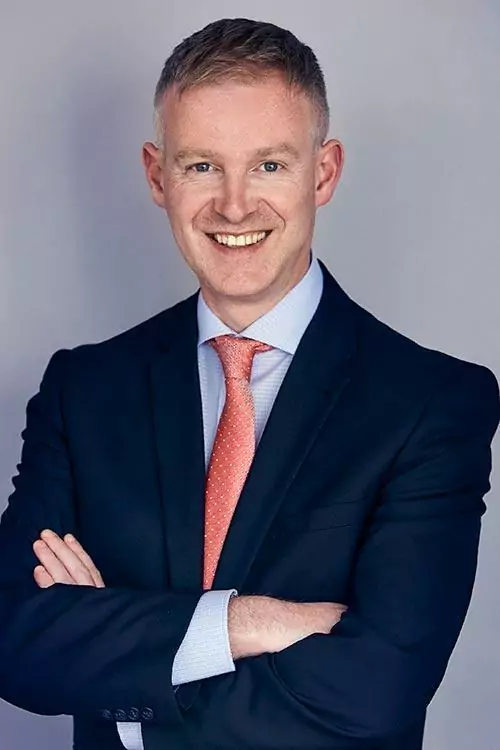We act as advocates on behalf of young people charged with criminal offences in the Central and Circuit Criminal Courts and in the Childrens’ District Courts. We also act in other courts throughout the State in appropriate cases. We campaign for the promotion and protection of the rights of children and act at all levels in the family law courts and child protection courts and provide a round the clock advice service.
We aim to provide a first class legal advice service to children and young people and work in partnership with parents and families, teachers, social workers, guardian ad litems, gardai and other support workers in the promotion and protection of children’s rights. We advocate for, and campaign on behalf of, children and young people in welfare proceedings, family law applications, educational and disability entitlements, mental health law, asylum and immigration and other social supports.
We have one of the largest education law departments in the country and have been to the forefront in fighting for families accessing early assessment and service provision.
We have many years expertise in providing legal advice and representation to children and their guardians in relation to the Garda juvenile liaison scheme (commonly known as the JLO scheme), at detentions for interview in garda stations and in relation to illegal detention at young offenders institutions before the High Court.
Whenever a juvenile comes into contact with the criminal justice system or has a welfare need, at KOD Lyons we possess the specialist knowledge and sensitivity to deal with the case.
Court Separation
This section covers legal issues relating to the various ways that the Courts can adjudicate on the issue of Separation. If a couple cannot agree the terms of a separation / divorce, the Courts have to intervene to pass judgement and make provision for maintenance, childrens’ education, and so on.
This area of Family Law covers Custody, Guardianship and Visitation Rights; and Child Abduction. KOD Lyons Solicitors have significant experience in both of these.
Custody / Guardianship / Visitation Rights
The main consideration in relation to such Applications is the Welfare of the child.
In determining questions regarding Custody, Guardianship or upbringing of an infant, the Court shall regard the “welfare of the infant as the first and paramount consideration”.
Guardianship
Guardianship relates to the duties of a person as to the welfare, care and upbringing of a child. Guardianship is not dependent on custody, i.e. a Guardian does not need to have custody of a child. The following is a summary of positions regarding those parties who can be appointed Guardians and the manner of such appointments.
Marital Children
The father and mother of an infant shall be Guardians of that infant jointly.
Non Marital Children
The following relates to children born of parents who are not married at the time of birth. In those circumstances only the natural mother is automatically deemed to be a Guardian. The natural father can become a Guardian by a number of means:
- Subsequently marry the natural mother.
- Apply to the Courts to be appointed a Guardian. It is important to note there is no automatic right to be appointed a Guardian, rather it is merely a right to apply to be appointed, refer to the decision of Keegan –v- Ireland which changed the Law in that respect.
- Reach an agreement with the natural mother to be appointed a Guardian. This agreement must be given effect to by the making of a Statutory Declaration.
Following the death of the natural mother or other Guardian, the natural father may be appointed Guardian. If he is so appointed, he is referred to as a “Testamentary Guardian”. Up until 20 years ago, the issue of Guardianship rights of unmarried fathers was quite simple. There were no such rights. It was not until the Status of Children’s Act 1987 that natural fathers could apply to Courts to be appointed a Guardian. It was made very clear by the Supreme Court in the decision of JK –v- VW that this was merely a right to apply and was not a right to be automatically be appointed Guardian. Natural mothers have an automatic right to Guardianship, natural fathers do not.
Custody
Custody is concerned with the day to day care and control of a child. Guardians have an automatic right of custody to a child as against all non Guardians.
Access
Having failed to obtain Guardianship and Custody a person may apply for access to a child. Access essentially permits a parent to meet and/or communicate with a child. In general the attitude of the Irish Courts to Guardianship, Custody and Access is that these rights are viewed as rights of a child. This is in keeping with sentiments expressed in the European Convention on Human Rights which is now part of our legal system pursuant to the European Convention on Human Rights Act 2003. It has also been held that access is a right of the child and it should only have been allowed if it’s not in the best interests of the child.
Ireland and Child Abduction
These statistics are incomplete in that they failed to include children taken to Muslim countries and outside the remit of both The Hague and Luxembourg conventions.
Ireland is a signatory to both The Hague and Luxembourg conventions and these conventions have been incorporated into Irish Domestic Law by the Child Abduction and Custody Orders Act 1991. Ireland also comes under Council Regulation (EEC) No. 2201 – 2003 of the 27th November 2003 concerning jurisdiction and the recognition and enforcement of Judgments in Matrimonial matters and in matters of parental responsibility.
An Application in respect of a child abducted into this State must be addressed to the Central Authority for Ireland. Their contact details are as set out below:
| Department of Justice | Phone: 353 (1) 479 0200 |
| Equality and Law Reform | Fax: 353 (1) 479 0201 |
| Bishop Square | Email: child_abduct@justice.ie |
| Redmond Hill, Dublin 2 | Website: www.justice.ie |
An Application Form for the submission to the Central Authority is available on the above website. In Ireland Child Abduction Legal Services are arranged by the Irish Central Authority exclusively through Legal Aid Solicitors in Law Centre provided by the Legal Aid Board
The Legal Aid Board can be contacted at the following address:
| Head Office | Phone: 066 947 1000 |
| Quay Street | Fax: 066 947 1035 |
| Cahirciveen | Email: info@legalaidboard.ie |
| County Kerry | Website: www.legalaid.ie |
Solicitors in Private Practice can be instructed in the following situations.
- Where a parent chooses not to avail of legal services through the Legal Aid Board.
- Where a parent wishes to be privately represented.
- Where a parent who has removed the child to Ireland is not eligible for Legal Aid.
- Where a Lawyer in another jurisdiction seeks a Legal Opinion in relation to Irish Law.
- Access Applications under Article 21 of The Hague Convention which have not been legally aided.
Statistics indicate that almost twice the number of children are abducted into Ireland as are removed from the country. The greatest number of abductions related to England and Wales followed on by the United States.
Organisations which can assist parents who have children abducted to countries which are not members of The Hague Conventionare:
ICPAC
(The Irish Centre for Parentally Abducted children)
43 Molesworth Street,
Dublin 2
Tel. 6620667
email: icpacseminar@gmail.com
www.banotti.ie
Reunite International
P O Box 7124
Leicester LE1 7XX
Advice line: 0044 (0) 162556234
Tel. No.: 0044(0) 116255534
Applications under The Hague/Luxembourg Conventions are taken in the High Court. If there is a threat of abduction of a child, an Application can be made to the District Court, Circuit Court or High Court for various Orders such as custody, Orders restraining removal from the jurisdiction, Orders in relation to Passports.
In Irish Law unmarried parents are in a different position from married parents in that the mother of the child is automatically the sole Guardian and Custodian of the child. The unmarried father must be put into joint Guardianship position either by way of a Legal Agreement or by virtue of a Court Order. Ireland has incorporated the European Convention on Human Rights into Irish Domestic Law and the right to respect for family and private life of established unconventional families pursuant to Article 8 are afforded due respect.
The rights of natural fathers to custody of their children must now be interpreted in light of a recent Judgement of McKechnie J and the case of GT –v- KAO and The Attorney General unreported 10th September 2007. In that case the Judge recognized that for the purposes of The Hague Convention Inchoate Rights are not part of our Law. There are some steps that can be taken to prevent or minimize risk of Child Abduction and they can be numerated as follows:
- Obtain a Court Order for custody/joint custody or access with an Order restraining removal from jurisdiction without the consent of either the Court or the other party.
- If not married, then an Order should be made in relation to Guardianship and in relation to access.
- If the child has a Passport, ensure that it is secure. If a child has dual citizenship, write to the non Irish Embassy requesting that a Passport not be issued without notification to you.









